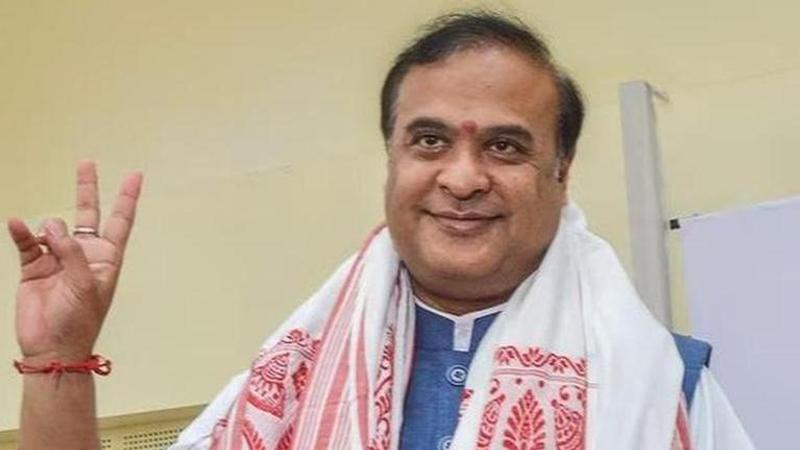Published 12:28 IST, September 2nd 2023
146 For, 3 Against: Decoding Assam govt’s move to ban polygamy
In Assam, 2.4% of the marriages are polygynous. It has the widest gap between Hindu and Muslim women admitting to being into such a marriage: NFHS-5.

Assam Chief Minister Himanta Biswa Sarma has put out the suggestions received by the Assam government over the proposed law to end polygamy in the state. The Assam government has earlier sought public opinion on the matter. The Assam government has received 149 suggestions on the matter, among which 146 are in favour of ending polygamy while three institutions have registered their objection, CM Sarma informed on microblogging site X (formerly Twitter).
"We have received a total of 149 suggestions in response to our public notice. Out of these, 146 suggestions are in favour of the bill, indicating strong public support. However, 3 organizations have expressed their opposition to the bill. We will now proceed to the next stage of the process, which is to complete the final drafting of the bill in the next 45 days,” he wrote.
- Update on proposed bill for banning polygamy -
— Himanta Biswa Sarma (@himantabiswa) September 2, 2023
We have received a total of 149 suggestions in response to our public notice. Out of these, 146 suggestions are in favor of the bill, indicating strong public support. However, 3 organizations have expressed their opposition to the…
The question is Can the Assam Government bring in such a law? The answer is Yes, as marriage falls under the concurrent list, both the center as well as the state government can frame laws on it.
On May 12 this year, the Assam government announced the move to ban the practice of polygamy in the state through “legislative action”. An expert committee was also constituted to examine the issue. The expert committee has opined that the state government is legislatively competent to frame laws to end the practice of polygamy, however, it would need the President’s assent.
What is Polygamy?
Polygamy consists of two words; poly (multiple) and gamos (marriage or union)’ referring to a practice of having more than one married spouse. When a woman has more than one husband, it is called Polyandry while if a man has more than one wife, it is referred to as Polygyny. Polygyny is a major practice around the world including India. The matter of polygamy is governed both by personal laws and the Indian Penal Code (IPC).
Understanding the laws surrounding Polygamy?
In India, as there is no Uniform Civil Code, personal affairs are governed by religious laws and different religious codes lay out different rules with respect to polygamy.
- For Hindus, polygamy is a criminal offence under the Hindu Marriage Act, of 1955. Section 11 of the act declares polygamous marriages void and mandates monogamous unions. If performed, Section 17 of the same act along with Sections 494 and 495 of the IPC elaborates on the prospect of punishment. Under the Hindu Marriage Act, bigamy (having two spouses) is also an offence in the entire nation except Goa, as the state follows its own personal laws.
- Since, Buddhists, Jains and Sikhs also follow the Hindu Marriage Act, the same applies to all three religious denominations.
- For the ones following the Islam religion, the ‘Muslim Personal Law Application Act (Shariat) enacted in 1937 by the All India Personal Law Board allows up to four marriages.
- In the Parsi religion, bigamy has been outlawed by the Parsi Marriage and Divorce Act, of 1936.
- The Special Marriage Act (SMA), enacted in 1954 which was brought in to allow individuals belonging to different religions to marry, also forbids polygamy.
Prevalence of Polygamy in Assam, and India?
As per the National Family Health Survey (NFHS-5), in India, the prevalence of polygamy is as follows- 2.1% among Christians, 1.9% among Muslims, 1.3% among Hindus and 1.6% among other religious groups in the country. The survey also suggests that polygamy is highly practiced in the Northeastern states among the tribal population as compared to any other region, with Meghalaya topping the list.
The rate of polygamy was 2.4 among STs higher than the national average of 1.4 %, and 1.5 among SCs, 1.3 among OBCs.
As per NFHS-5, in Assam, 2.4% of the marriages are polygynous. While in Arunachal Pradesh it's 3.7%, 4.1% in Mizoram and 3.9% in Sikkim, according to analysed Indian Institute of Population Sciences.
Further, Assam has the widest gap between Hindu and Muslim women admitting to being in a (polygamous) polygynous relationship. The rate of polygamy among Hindus in Assam was about 1.8 per cent as against 3.6 per cent among Muslims, according to NFHS-5.
Is it a move towards Uniform Civil Code (UCC)?
Before this, the Assam Government had cracked down on child marriages in February this year pledging to end the menace of child marriage in the state by 2026. A total of 4235 cases were registered while over 3000 were arrested then.
The step is being seen as a move towards UCC, however, the state government advocates for the same presenting it as a necessary social reform.
Updated 12:28 IST, September 2nd 2023




